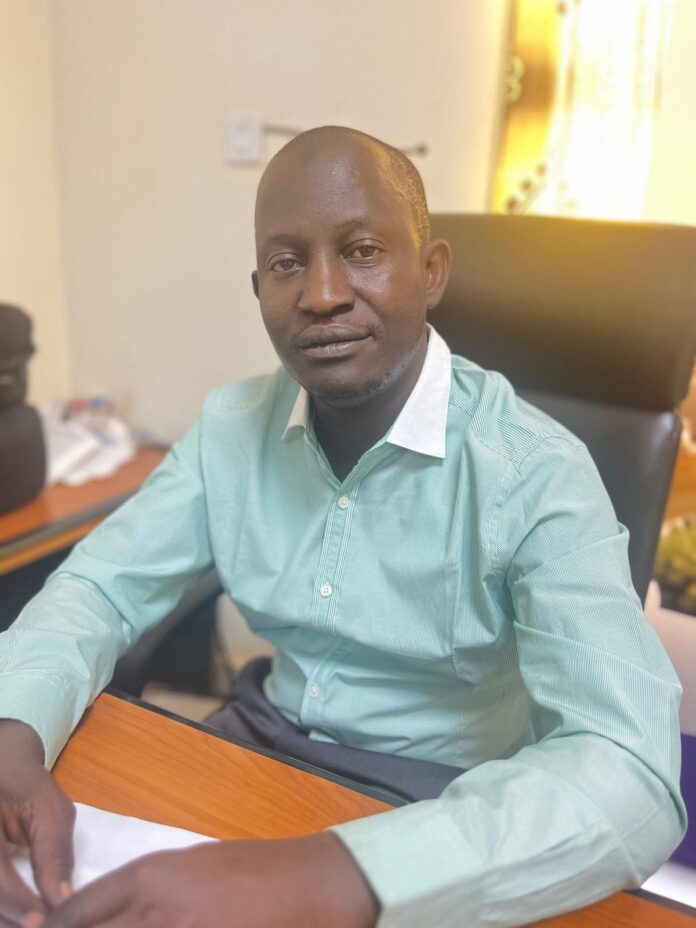By Alieu Jallow
The Regional Disaster Management Coordinator for the North Bank Region (NBR), Lamin Saidy, has called for increased budgetary allocations to the National Disaster Management Agency (NDMA), citing persistent funding challenges that hinder effective disaster response in the region.
In an exclusive interview with The Fatu network, Mr Saidy highlighted how financial challenges affected their disaster response mechanism, citing the recent assessment following flash floods and windstorms that affected all seven districts in the NBR, particularly in 2021, where 10 people lost their lives, noting the efforts put in place to strengthen resilience.
“In Kerewan, there is a community hard hit by flooding, and so we tried to rehabilitate one of the roads that is heavily impacted by flooding as a process of building resilience, which is community-led with support from NDMA. We also established district committees, which include local authorities within the district, with plans to establish village-level disaster committees.”
Saidy reported that over 100 households were impacted, with 12 families displaced and currently sheltered by neighbours and relatives.
Despite efforts to enhance disaster response capabilities, including the procurement of essential equipment through international aid, the NDMA continues to face significant financial constraints. In January 2025, the French Development Agency (AFD) allocated €1 million to support flood recovery efforts and strengthen the NDMA’s institutional capacity. The funds were used to procure equipment such as tablets for data collection, motorbikes for rapid mobility, water pumping machines, and pickups to bolster the agency’s capacity.
Furthermore, the NDMA, in collaboration with partners like Catholic Relief Services and Future in Our Hands The Gambia, received $603,616 from ECOWAS in May 2024 to implement the Post-2022 Flood Recovery Response Project. This initiative aimed to provide multipurpose cash assistance, water, sanitation, and hygiene support to flood-affected communities across all eight local government areas in The Gambia.
Despite these interventions, the NDMA’s efforts are often hampered by limited financial resources. The Gambia’s National Disaster Risk Management Policy 2024-2032 acknowledges the challenge of scaling up financial resources for disaster risk reduction (DRR) implementation, emphasising the need for increased budget allocations and access to international funding. Against this backdrop, Saidy calls for an increased allocation to make their work effective and efficient.
“Government needs to increase its budget and allocation for disaster operations in the country because, looking at the cycle of the DRR, which talks about disaster reduction prevents on preparedness, mitigation recovery. So, it’s a whole lot of operations. So, there’s a need for budget-free allocation to do our work, as you know, expected,” he states.
As part their preparation efforts in disaster response Mr Saidy underscore the importance of capacity, especially for their data collectors, for effective and timely response to disaster incidents.
“We’re strengthening all the regional structures in North Bank. We’ve identified the data collectors, our disaster collection tools are prepared, they are all set, but now we call for budgetary allocation so that when we have a disaster incident, there could be a rapid response towards that disaster”.
As climate change continues to exacerbate the frequency and intensity of natural disasters, stakeholders in the North Bank Region and across The Gambia are urging increased investment in disaster preparedness and response to safeguard vulnerable communities.




